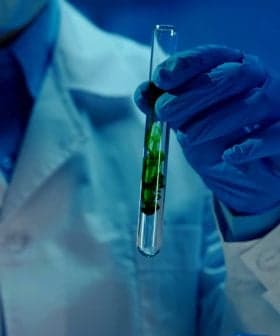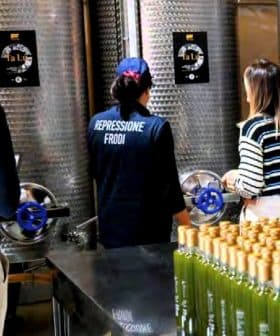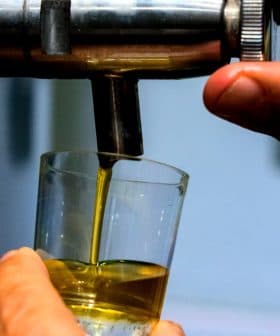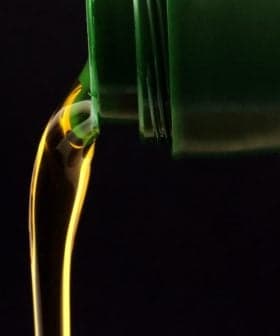Seven Held in Greece for Alleged Olive Oil Fraud
The suspects used a dye to alter the color of the sunflower oil to appear like olive oil.
Seven people in Thessaly, Greece were arrested for selling adulterated sunflower oil as extra virgin olive oil at half the market price, with the operation based in a workshop near Larissa. The suspects face charges of defrauding the state, issuing false documents, and money laundering, with authorities seizing a total of 17 tons of the fake oil.
Seven people have been arrested yesterday in the Greek province of Thessaly following allegedly fraudulent sales of adulterated sunflower oil, according to reports. Their products were passed off as being extra virgin olive oil sold for half the market price, claiming to be directly from the producers.
Operating out of a workshop near the city of Larissa which is located in the northern province of Thessaly, the oil had been sold both locally and abroad.
The four family members along with three other relatives were charged with defrauding the state, issuing false documents and money laundering. Authorities said they were also involved in criminal gang activities. The prosecutor’s office confirmed that all seven involved in the operation will be present in court later this week to undergo further questioning by the magistrate.
The oil was packaged into pallets, each weighing a ton, before being exported. Five tons of unpackaged oil had already been seized as well as another 12 tons which were just about to be exported.
The seven made use of a workshop where a fleet of luxury vehicles led to the charges of money laundering, according to the Washington Post.
In the workshop, they used a dye to alter the color of the yellow sunflower oil to take on a green color to appear like genuine olive oil. The adulterated oil was being sold for under €15 as opposed to average retail prices which range from €26 to €30 for a 5‑liter drum of olive oil.
The Hellenic Food Authority (HFA) is responsible for setting quality standards for the protection of public health and the prevention of fraudulent practices. The authority became aware of the sales of these unadulterated oils back in 2015 when it was first reported by local olive oil producers who discovered that their codes were being used on brands which they had neither produced nor sold.
Officials who conducted the HFA investigation claimed that the dye was analyzed and found to be a product which is easily available and safe to use. However, it was mentioned that the initial dye used in the operation contained carcinogenic substances.
Prior to the recent arrest, police had taken in as many as 60 people who were caught up in operations which involved selling the fake products. At that stage, a warehouse in Thessaloniki was also raided and found to be used for packaging of the goods. The workshop raided on Sunday has since been identified as the main operation.








